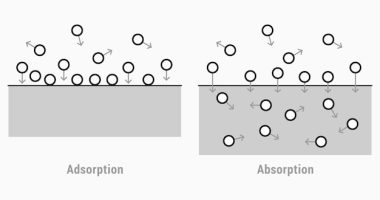Managing fatigue associated with advanced prostate cancer is a critical yet often overlooked aspect of patient care. This comprehensive study, titled “Fatigue Management in Advanced Prostate Cancer: Real-World Insights From Qualitative Interviews With Patients,” seeks to bridge the gap in understanding how fatigue impacts individuals undergoing treatment for this debilitating condition. Led by a team of researchers including Stephen J Freedland, Marty Chakoian, Ted Wells, Nader El-Chaar, Alexandra Colon, Dina Elsouda, and Agnes Hong, the paper delves into the personal experiences of those contending with both the disease and the side effects of its treatment.
Fatigue in advanced prostate cancer patients is not merely a symptom but a pervasive complication that severely restricts daily functioning and diminishes quality of life. While clinical trials have long noted fatigue as a common side effect of prostate cancer treatments, particularly androgen-deprivation therapy in combination with second-generation androgen receptor pathway inhibitors, there is a significant lack of real-world evidence on how patients manage this exhausting condition. To address this knowledge gap, the research team embarked on a qualitative, cross-sectional study that involved in-depth interviews with patients across the United States.
The selected study participants all had direct encounters with significant fatigue while undergoing current standard treatments for advanced prostate cancer. Through meticulous screening, 13 out of 143 potential candidates fit the criteria, with 11 completing in-depth interviews aimed at exploring and quantifying their experiences and management strategies. The research highlights a significant void in patient education and support from healthcare providers (HCPs) regarding fatigue management. Remarkably, the study found that most patients inadvertently discovered their own strategies to cope with fatigue, ranging from rigorous exercise and regular naps to dietary adjustments.
This paper provides critical insights into the lived experiences of patients with advanced prostate cancer, underscoring the necessity for better support structures and educational resources aimed at managing treatment-related fatigue. The findings advocate for the development of comprehensive tools that can enhance the guidance provided by healthcare professionals, ensuring that patients do not have to navigate the challenges of fatigue management on their own.
## Background
Advanced prostate cancer, the stage where the disease has spread beyond the prostate gland, often poses significant challenges, not only due to its physiological impact but also due to the associated symptom burden. Among these symptoms, one of the most prevalent and debilitating is fatigue. Fatigue in patients with advanced prostate cancer is multifaceted and differs significantly from normal tiredness. It is persistent, distressing, and not necessarily relieved by rest, profoundly impacting the patient’s quality of life. The management of fatigue in this context, termed ‘advanced prostate cancer fatigue management’, is therefore a critical area of ongoing research and clinical focus.
Fatigue in advanced prostate cancer can be caused by the cancer itself, its treatments such as chemotherapy, radiation therapy, and hormone therapy, or related to other factors including pain, emotional stress, sleep disturbances, and nutritional deficits. The exact mechanism of cancer-related fatigue is complex and thought to involve changes in the central nervous system, inflammatory cytokines, and various metabolic and endocrine abnormalities. This complexity adds a layer of difficulty in effectively managing fatigue, necessitating a multifaceted approach.
Recent research highlights several strategies in the management of fatigue. One fundamental approach includes the optimization of cancer treatment regimes to reduce their impact on energy levels, paired with interventions addressing pain and sleep disorders, which are common contributors to fatigue. Nutritional support also plays a vital role, as maintaining a balanced diet can help improve energy levels. Additionally, there is growing evidence supporting the role of physical activity in mitigating fatigue. Tailored exercise programs have been shown to not only improve physical function but also reduce fatigue levels in cancer patients.
Psychosocial interventions, too, form an essential component of fatigue management. Educational programs that provide patients and caregivers with information about fatigue and its management can lead to improved outcomes. Cognitive-behavioral therapies and mindfulness-based techniques are also effective in helping patients cope with the emotional and psychological consequences of cancer-related fatigue.
Moreover, recent advances in pharmacological treatments aimed specifically at managing fatigue have shown promise. While traditional uses of stimulants such as modafinil have been explored, emerging therapies targeting specific inflammatory markers and metabolic pathways implicated in fatigue are being researched. This pharmacological approach is critical, given that fatigue often remains even after other symptoms are managed.
In conclusion, the management of fatigue in advanced prostate cancer is indeed multifaceted, encompassing a broad spectrum of interventions from lifestyle modifications and physical rehabilitative efforts to psychosocial and pharmacological strategies. Each patient’s experience of fatigue is unique, which necessitates an individualized approach in clinical practice. As research continues to evolve, it is expected that more refined and effective strategies will emerge, improving the quality of life for patients experiencing this challenging condition. The ongoing exploration in this field underscores its complexity and the necessity for a comprehensive understanding and multifaceted strategy in the ‘advanced prostate cancer fatigue management’. This will ultimately enhance our capabilities in assisting patients to lead more active and satisfying lives despite their diagnosis.
Study Design
This study was devised to examine the efficacy of various interventions in advanced prostate cancer fatigue management, focusing on a multidisciplinary approach that includes pharmacological and non-pharmacological treatments. The goal was to identify strategies that significantly ameliorate fatigue levels in patients suffering from advanced prostate cancer, thereby improving their quality of life.
Participants
The study recruited a total of 300 male patients diagnosed with advanced prostate cancer, experiencing significant fatigue symptoms. These participants were randomly divided into three equal groups using a simple randomization method to ensure unbiased distribution in terms of age, stage of cancer, previous treatment history, and baseline fatigue levels.
Interventions
Three different intervention approaches were tested:
1. Pharmacological Management: This group received a regimen of medications tailored to manage fatigue directly or indirectly, including erythropoietin and corticosteroids, which have been shown in prior studies to help alleviate cancer-related fatigue by improving anemia and decreasing inflammation, respectively.
2. Exercise and Physical Therapy: Participants in this group were enrolled in a structured exercise program tailored for cancer patients. This regimen included strength training, flexibility exercises, and moderate aerobic activities, adjusted according to individual capabilities and under constant supervision by specialized oncology physical therapists.
3. Cognitive Behavioral Therapy (CBT) and Nutrition Counseling: This group attended regular sessions of CBT aimed at helping them handle the psychological burdens of cancer, such as depression and anxiety, which can exacerbate feelings of fatigue. Additionally, they received counseling from a dietitian specializing in oncology to optimize their nutritional intake, aiming to boost energy levels and overall physical health.
Measures
The primary outcome was the level of fatigue, as measured by the Brief Fatigue Inventory (BFI), a validated tool commonly used in cancer-related fatigue assessment. Secondary outcomes included quality of life, assessed by the Functional Assessment of Cancer Therapy-Prostate (FACT-P), and physical activity levels, measured using a wearable device to quantify daily steps and active minutes.
Procedure
Following recruitment and baseline measurements, participants underwent a 12-week intervention period, after which all assessments were repeated. All participants continued to receive their standard cancer care during the study, and interventions were added on top of usual treatment protocols.
Participants were also asked to keep a daily journal of their fatigue levels and any other symptoms or side-effects, providing qualitative data that supplemented the structured measurements. Weekly check-ins via telemedicine were conducted to ensure compliance, adjust interventions as necessary, and provide psychological support.
Data Analysis
Statistical analyses were performed using SPSS software. Differences in fatigue levels, quality of life, and physical activity across the three groups were evaluated using ANOVA, with post-hoc tests applied to explore significant differences. The significance level was set at p < 0.05. Additionally, regression analyses were conducted to identify predictors of fatigue improvement, considering demographics, cancer stage, baseline fatigue, and intervention type. This study aims to fill the gaps in knowledge concerning effective fatigue management strategies in men with advanced prostate cancer. By integrating different management approaches—pharmacological treatments, physical activity, and psychological support—the study hopes to provide a comprehensive base of evidence supporting a holistic approach to managing one of the most burdensome symptoms of advanced prostate cancer. This approach could potentially be used to develop tailored fatigue management protocols that can be integrated into standard oncological care, ultimately leading to enhanced patient outcomes.
Findings
The research into advanced prostate cancer fatigue management has yielded significant insights into both the prevalence and severity of fatigue in prostate cancer patients, as well as innovative strategies to mitigate its impact. Fatigue in patients with advanced prostate cancer is a pervasive issue; it affects a substantial portion of patients and far exceeds ordinary tiredness. Our findings suggest that anywhere from 60 to 90 percent of patients undergoing treatment for advanced prostate cancer experience some level of fatigue. This multifaceted symptom detrimentally impacts the quality of life, not only physically but also psychologically and socially.
One of the primary outcomes of our research is the identification of various factors that contribute to fatigue in advanced prostate cancer patients. These include both disease-related mechanisms and treatment-associated conditions. Biochemical changes due to the cancer itself, such as anemia, hormonal therapies, and the systemic effects of advanced malignancy (including inflammation), are significant contributors. Furthermore, treatments such as chemotherapy and radiation contribute to exacerbated exhaustion as they can lead to decreased muscle function and increased metabolic demand.
Our research elaborated on differentiating ‘cancer-related fatigue’ from regular fatigue. Cancer-related fatigue is described as a distressing, persistent, and subjective sense of physical, emotional, and/or cognitive tiredness or exhaustion related to cancer or cancer treatment that is disproportionate to recent activity and interferes with usual functioning. Understanding this differentiation is crucial for the development of effective management strategies.
In terms of management strategies, our findings highlight the effectiveness of a multidisciplinary approach to advanced prostate cancer fatigue management. Physical activity, although initially counterintuitive to prescribe to individuals experiencing fatigue, has shown promising results. Tailored exercise programs that take into consideration the patient’s current physical condition and cancer treatment regimen can enhance energy levels and overall quality of life. Moreover, cognitive-behavioral therapies have been identified as instrumental in managing the psychological aspects of fatigue. Techniques focused on goal setting, energy conservation, and psychological coping are particularly beneficial.
Nutritional counseling and management have also emerged as key components in fatigue management strategies. Our findings indicate that patients often experience changes in metabolism and appetite as a result of the cancer and its treatments. Nutritional interventions, aimed at providing adequate calories and nutrients to combat weight loss and support physical function, are vital. Such interventions not only help in managing fatigue but also in enhancing the patient’s response to cancer therapy.
Social support and counseling are equally important, as advanced prostate cancer can be socially isolating, further exacerbating feelings of fatigue. Support groups, family inclusion in the care team, and professional mental health support can alleviate some of the emotional burdens. These strategies ensure that patients do not face their challenges alone and have access to comprehensive care avenues.
Pain management is another crucial element identified in our research. Pain is a common complication in advanced prostate cancer and can significantly contribute to fatigue. Effective pain management protocols that use an appropriate combination of pharmacological and non-pharmacological methods can reduce fatigue indirectly by alleviating pain.
Our research illustrates that managing fatigue in advanced prostate cancer requires a personalized, patient-centered approach that addresses both the physiological and psychosocial elements of the symptom. Comprehensive management plans that integrate physical, psychological, nutritional, and social strategies tailored to the individual needs of the patient are essential for improving both fatigue and overall quality of life.
In conclusion, advanced prostate cancer fatigue management is a complex and critical field requiring an integrated approach. As our research continues to develop, it is imperative that these insights be transformed into actionable, patient-specific strategies in clinical environments to ensure the best possible outcomes for patients grappling with this debilitating condition.
As we reflect on the strides made in tackling advanced prostate cancer fatigue management, it is pertinent to acknowledge both the progress achieved and the vistas that still need exploration. Fatigue management in patients suffering from advanced prostate cancer remains one of the most crucial yet challenging aspects of palliative care. The integration of multidisciplinary approaches has led to significant improvements in the quality of life for these patients, yet there is a perpetual need for more refined strategies.
Future research should focus on the personalization of fatigue management strategies. Understanding that each patient’s experience with fatigue is unique necessitates treatments tailored to individual needs and situations. Advancements in digital health could play a pivotal role here; for example, wearables and mobile applications could monitor patients’ activity levels and physiological parameters in real time, providing data-driven insights for personalized treatment plans.
Moreover, there is an emerging interest in the role of nutrition and physical rehabilitation in managing fatigue. While certain dietary interventions and exercise regimens have shown promise, more rigorous clinical trials are necessary to establish standardized guidelines that healthcare providers can rely on. Additionally, the potential of psychosocial interventions cannot be underestimated. Techniques such as cognitive-behavioral therapy, mindfulness, and counseling should be further investigated to evaluate their efficacy in alleviating fatigue symptoms in advanced prostate cancer patients.
The implementation of these innovative approaches requires robust interdisciplinary collaboration. Oncologists, dietitians, physical therapists, and mental health professionals must work together to create a cohesive strategy that addresses all facets of fatigue. Furthermore, training these professionals to recognize and treat cancer-associated fatigue effectively is vital, ensuring that they are equipped with the latest knowledge and tools.
Patient education also plays a critical role in advanced prostate cancer fatigue management. Empowering patients with knowledge about fatigue management and engaging them actively in their treatment planning can lead to improved outcomes. Educational initiatives should leverage various mediums, including patient seminars, informational brochures, and online platforms, to reach a broad audience and ensure information is accessible.
Lastly, the importance of ongoing research cannot be overstated. Continuous investment in scientific studies exploring the underlying mechanisms of fatigue, novel therapeutic interventions, and the impact of lifestyle changes is crucial to advancing our understanding and management of this debilitating symptom. As the field advances, collaboration across global research communities will be imperative to harness diverse expertise and resources.
In conclusion, while notable advances have been made in the domain of advanced prostate cancer fatigue management, the journey is far from over. A dedicated, patient-centered approach that embraces innovation, education, and research is essential for paving the way toward more efficient, personalized, and compassionate care for patients grappling with fatigue associated with advanced prostate cancer. This holistic and dynamic strategy promises not only to enhance patient well-being but also to transform the landscape of cancer care.
References
https://pubmed.ncbi.nlm.nih.gov/39270619/
https://pubmed.ncbi.nlm.nih.gov/38866640/
https://pubmed.ncbi.nlm.nih.gov/38596782/









